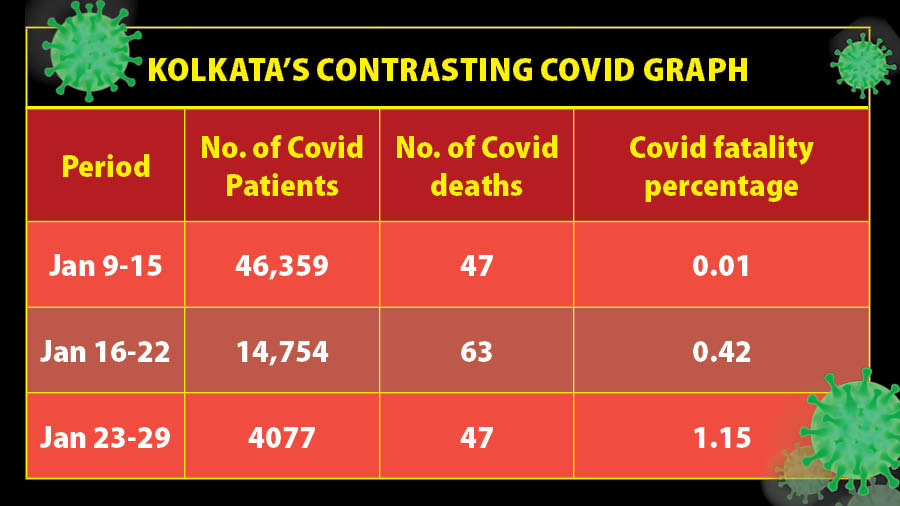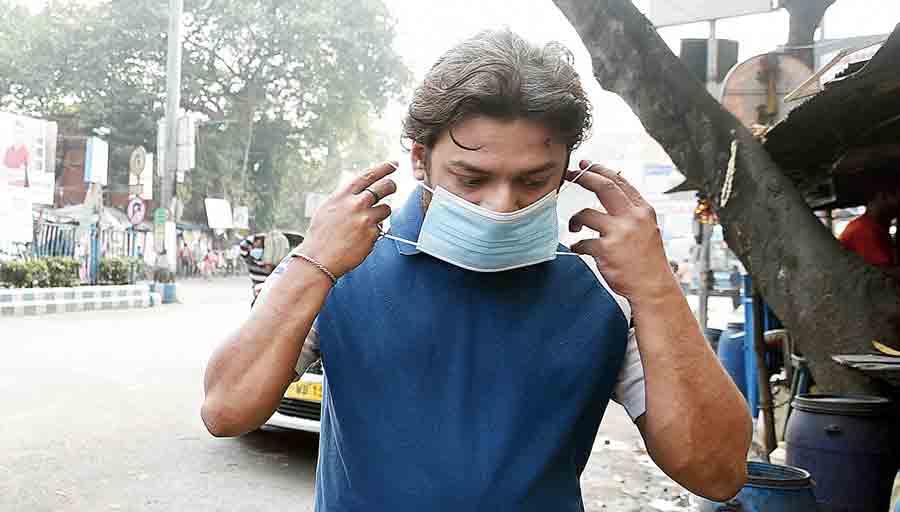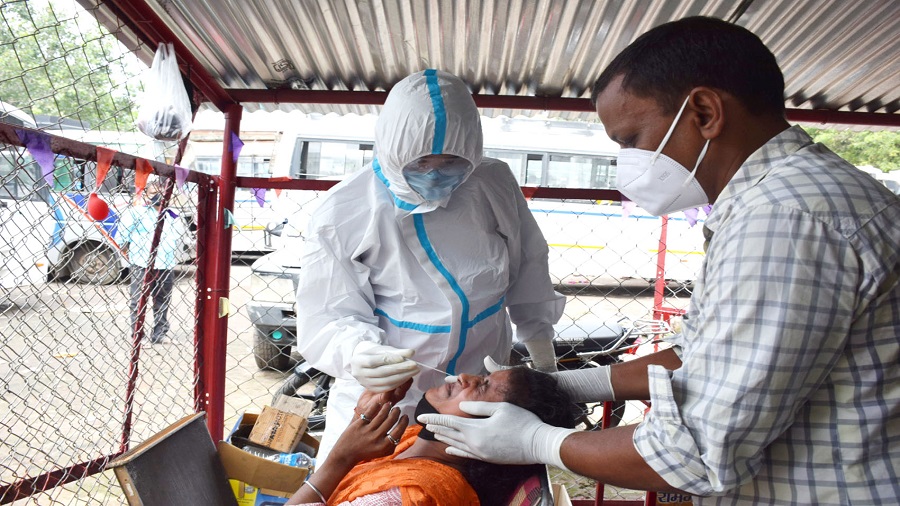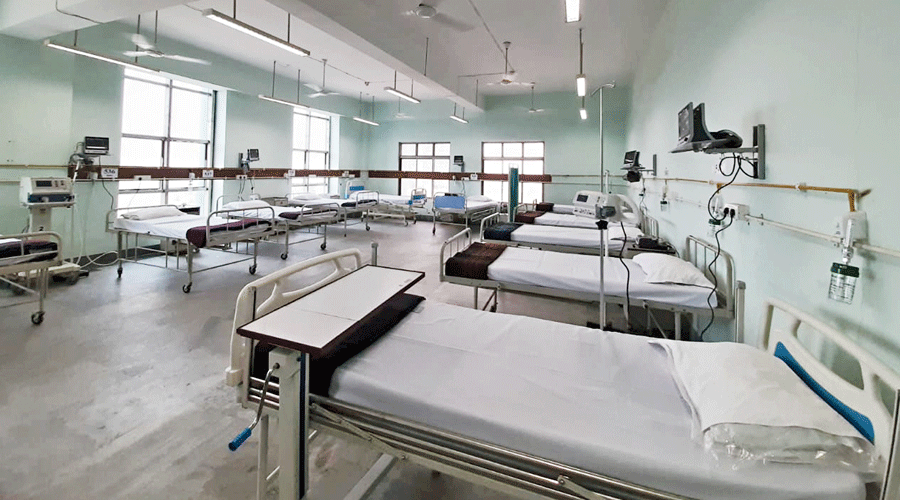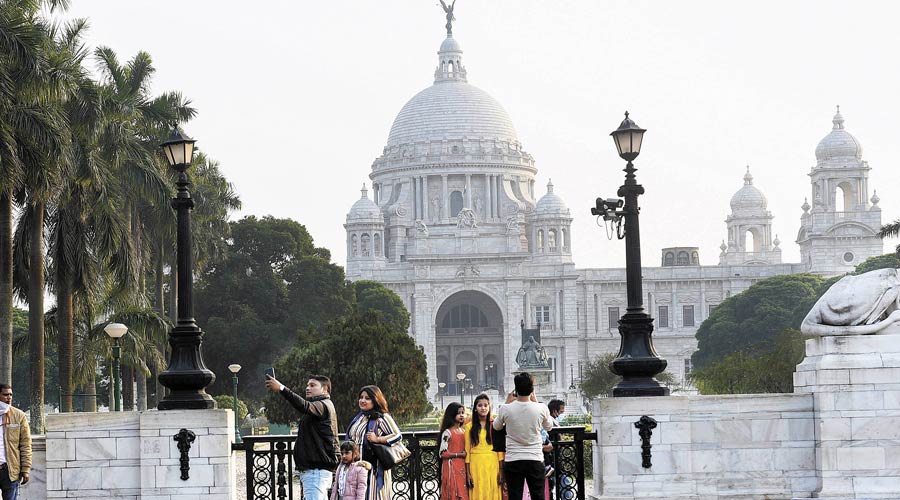The number of Covid cases in Kolkata declined sharply in the second fortnight of January but the number of deaths triggered by the coronavirus rose during the period, shows a report of the Bengal health department.
The number of Covid cases in Kolkata reduced by 72 per cent between January 23 and 29, compared with the week between January 16 and 22, which, in turn, was 68 per cent lower than the week earlier, January 9 to 15.
“Ward 109 (Santoshpur-Ajoynagar-Hiland Park) of the Kolkata Municipal Corporation (KMC) had the most number of cases — about 125 — in the last week of January, followed by adjoining wards like 106 (Haltu-Kasba) and 107 (Panchannagram-East Calcutta Township). All of these areas are around the EM Bypass. Ward 69 (Beckbagan) and 93 (Dhakuria-Jodhpur Park-Lake Gardens) also had more than 50 cases each,” said a senior official of the state health department.
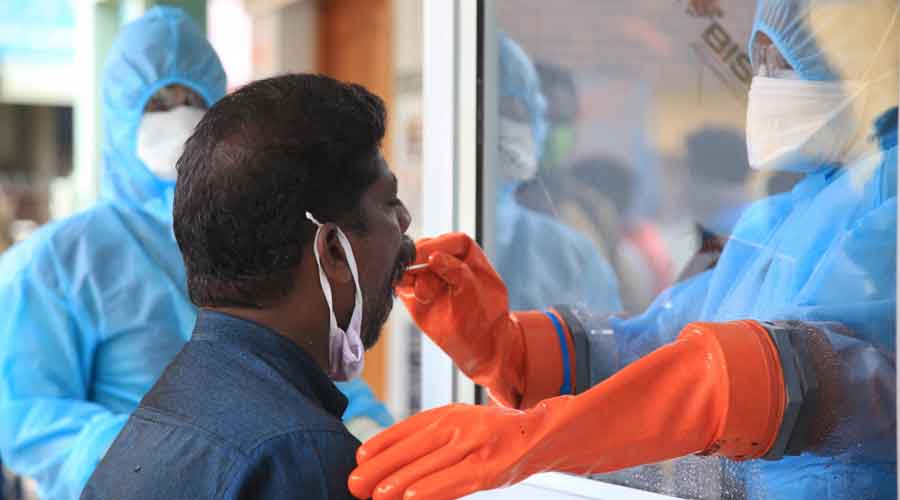
A man gets tested for Covid-19. The number of Covid deaths in Kolkata does not mirror the decline in cases TT archives
The number of Covid deaths does not mirror the decline in cases: 47 between January 9 and 15; 63 between January 16 and 22; and 47 between January 23 and 29.
“While the number of Covid cases reduced by more than 90 per cent in January 23-29 compared with January 9-15, the death rate over the same period increased almost 10 times with the absolute number of deaths not declining,” said the health department official.
According to the official, the rest of Bengal also showed the same trend. Over the last fortnight, between 30 and 35 Covid patients have been dying daily, the official said.
The Union health ministry’s figures show that Bengal had the fourth highest death rate in the country, after Kerala, Maharashtra and Karnataka, in the January 31-February 6 week.
Physicians believe that comorbidity could be one of the explanations for the high death rate. The delta variant could also account for some of the deaths.
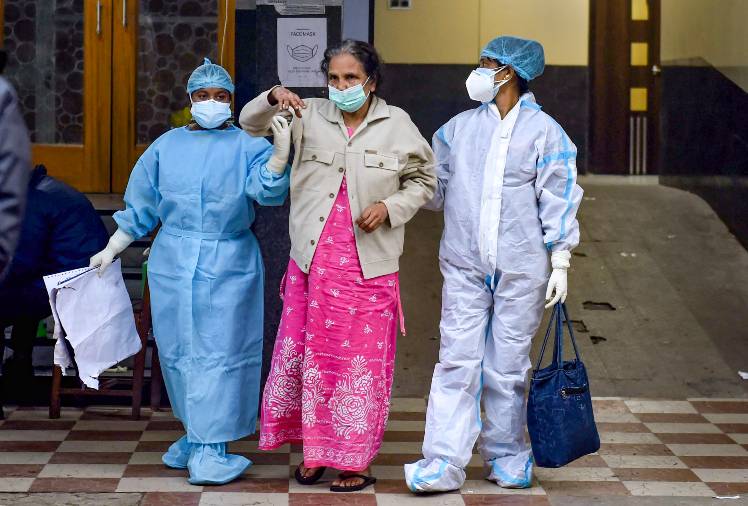
Health workers help a patient after her discharge from a state government-run COVID-19 hospital, in Kolkata. Physicians believe that comorbidity could be one of the explanations for the high death rate PTI
“Mainly comorbid patients, incidentally afflicted with Covid as it has now become a community disease, are dying. But I believe the delta variant could also be behind the severity of Covid and deaths of some patients,” said Raja Dhar, a city physician who has been treating Covid patients.
“We have to accept that the delta variant is still there. Otherwise we cannot explain the severity of Covid that we are seeing in some patients,” said Ajoy Sarkar, a Covid specialist.
“We are still getting cases of white lungs, which means patients are being severely affected. It’s not clear whether only delta or both delta and omicron are causing the deaths. We should think of the genomic study of all hospitalised patients for a clue about the role of various variants and even sub-variants like BA.2,” said city pulmonologist Arup Haldar.
According to data shared on January 24, omicron is causing 100 per cent of the Covid cases in the country with the BA.2 sub- variant responsible for 97 per cent of the cases. The Bengal data, updated till December 27, shows omicron triggering 85 per cent of the total Covid cases — 78 per cent by BA.2 — while 10 per cent cases were being caused by the Delta variant.
According to the data available on GISAID, a genomic database, updated till January 24, omicron is causing 100 per cent of the Covid cases in the country with the BA.2 sub-variant responsible for 97 per cent of the cases. The GISAID is hosted by the German government that promotes rapid sharing of data from all influenza viruses and the coronavirus.
The Bengal data, updated till December 27, shows omicron triggering 85 per cent of the total Covid cases — 78 per cent by BA.2 — while 10 per cent cases were being caused by the Delta variant.
"The spike gene in BA.2, like Delta, can be detected through RT-PCR while it is not detectable in the earlier omicron subvariant BA.1 because of mutations in primer binding site. However, we are not in a position to say whether BA.2 can cause a more severe disease than the BA.1,” said a senior scientist from the Indian SARS-CoV-2 Genomics Consortium (INSACOG) that looks after the genomic study of Covid variants in the country.
